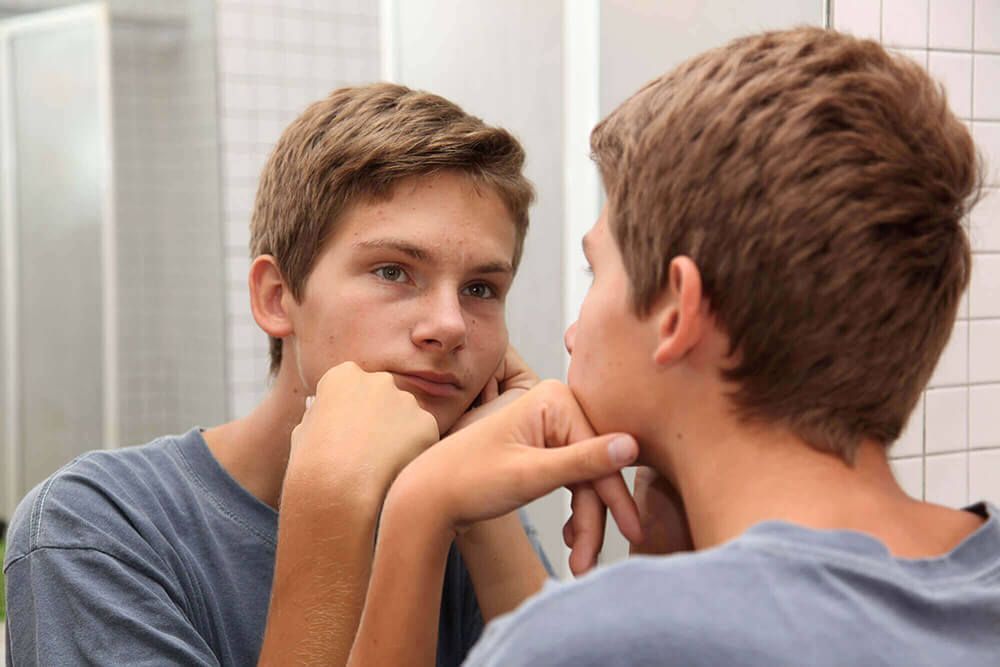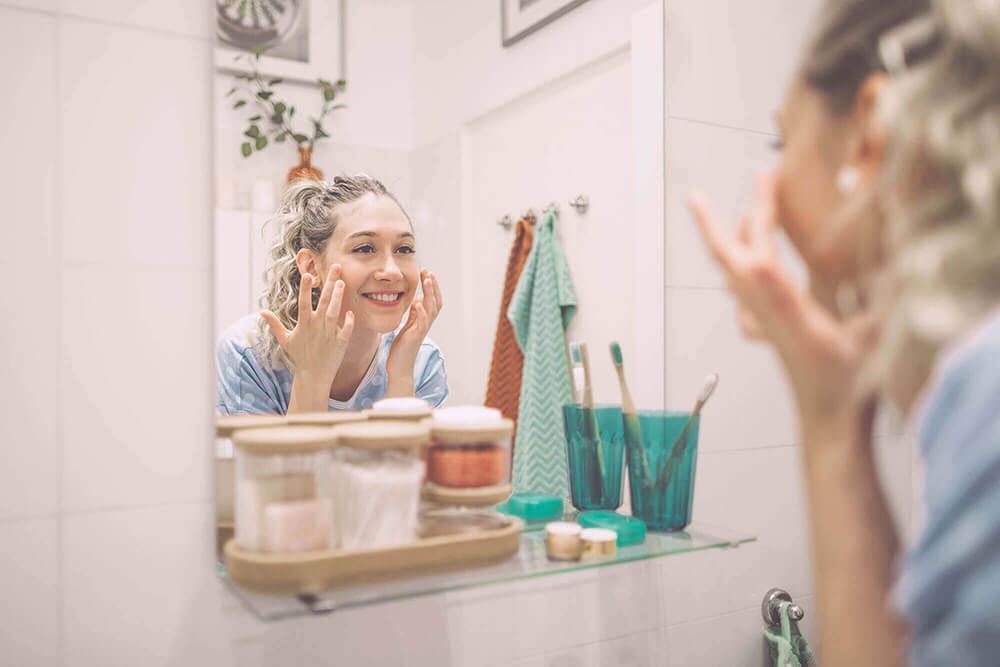How to get rid of teenage acne
Being a teenager usually means feeling self-conscious some (most!) of the time — it just comes with the territory. When you're already struggling to figure things out in middle school and high school, dealing with acne and breakouts can be extremely frustrating and embarrassing. You’re not alone. Nearly 85% of people between the ages of 12 and 24 experience some type of acne — blackheads, whiteheads, or red, inflamed pimples on their face or body. Whether you know the pain of acne first hand or you’re a parent trying to find the best acne treatment for your teens, we get it: Battling teenage acne isn’t easy. The good news is, there are teenage acne treatments that work.

Why do teenagers get acne?
Hormones and genetics are two of the leading contributing causes of teenage acne.
So, why do teens get acne? In both girls and boys, puberty triggers the production of androgens (male hormones including testosterone and DHT). This group of hormones tells your glands to enlarge and produce more oil, which is one of the leading causes of acne. When that excess oil mixes with dead skin cells and bacteria, it can clog up your pores and lead to breakouts. Products like the Proactiv Solution 3-step system can help remove excess oil while treating breakouts by killing acne-causing bacteria.
Did You Know?
Generally speaking, boys tend to have more severe teen acne than girls because they produce more androgens. Girls, on the other hand, may experience increased breakouts during certain times in their menstrual cycle and as adults as their hormones fluctuate from pregnancy, birth control, and menopause.
Characteristics of teenage acne
Teenage acne often starts with a few blackheads or whiteheads (open and closed comedones) or smaller pimples around the nose, cheeks, and forehead. Acne can show up anywhere on the skin where there are pores (which is everywhere!) so you may have to treat the body, too. ProactivMD Essentials System + Teen Duo is recommended for all skin types and teens with mild to moderate acne. Our acne-treating retinoid Adapalene Gel 0.1% helps speed teen acne healing and prevents whiteheads and blackheads from coming back.
How to treat teenage acne
Although you can’t control your hormones and genetics, thankfully there are some other ways you can treat and take care of your skin.
Here are some easy ways to manage your acne and minimize breakouts.
- Avoid cosmetics, moisturizers, and other skincare products that are comedogenic, which means they that can clog pores. Instead, use oil-free or non-comedogenic products — they’ll help your skin breathe and limit clogged pores.
- Friction or pressure on your skin can also lead to pimples or make teenage acne worse, so do your best to avoid touching your face and never, ever pick at your pimples! Doing so will only spread bacteria and lead to even more redness and irritation.
- Sanitize and regularly wash things that touch your skin, like your cell phone, headphones, sweatbands, helmets, and backpack. Tight clothing (especially sweaty workout clothes) can also lead to clogged pores.
- Stress alone won’t cause acne, but it can trigger acne or make breakouts worse. Look for ways to release tension, like exercising, deep breathing, spending time with loved ones, or meditating.
- After sports practice or working out, do your best to shower as soon as possible. The sweat and bacteria on your skin can clog pores and lead to breakouts not just on your face but also on your body.
- You may be tempted to deal with your acne and oily skin by washing your face several times a day or scrubbing at your breakouts, but that can actually irritate and dry out your skin, which will only make your skin produce more oil. Instead, gently wash your face twice a day with the best acne treatment for teens: proactiv.

Acne treatment for teens
The best acne treatment for teens is a consistent skincare routine formulated with effective active ingredients that treat and prevent breakouts.
- Benzoyl peroxide: Also referred to as BP or BPO, Benzoyl peroxide is a star acne-fighting ingredient. It delivers oxygen into your pores, killing the acne-causing bacteria because they can’t live in an oxygen-rich environment. BP is also an anti-inflammatory, which means it reduces the redness and inflammation (and sometimes pain!) that comes with your pimples. Benzoyl Peroxide is a key player in The Proactiv Solution Teen Kit’s Renewing Cleanser, Repairing Treatment, and Emergency Blemish Relief.
- Salicylic acid: Known as a beta-hydroxy acid (BHA), Salicylic acid is another extremely effective active ingredient for treating teen acne. It’s an exfoliant that encourages dead skin cells to loosen and shed, which helps clean out all that acne-causing debris inside your pores. With all those dead skin cells gone, your pores may look smaller, and your skin can appear more radiant. Salicylic acid is a critical ingredient in the Proactiv+ Teen Kit’s Complexion Perfecting Hydrator and Blackhead Dissolving Gel.
- Retinoids: Retinoids are a class of medications that are chemically derived from Vitamin A. When you hear the term "retinoid," it’s referring to robust products such as Adapalene. Until recently, these Adapalene was available only by prescription but now it’s available over the counter to treat acne. In fact, it’s the star ingredient in our ProactivMD Essentials System + Teen Duo and ProactivMD 3-Piece System. Our Adapalene Gel 0.1% prevents pimples and whiteheads from forming, clears clogged pores, reduces redness and inflammation associated with acne, and speeds the healing process. Plus, it helps improve skin texture and tone by clear acne, so it’s a great solution from proactiv for teens.
How to prevent acne scars
When you have acne, scars often come with the territory. The best way to avoid acne scars is to prevent them in the first place, by treating acne as soon as it develops — which is easy if you’re using one of our Proactiv for teens’ skincare systems! Just remember: Never squeeze, pop, or pick at pimples. You’ll only spread the infection, worsen inflammation, and encourage acne scars because the healing time is extended. Always allow blemishes of any kind to heal on their own so you can prevent even more scarring. Lastly, make an effort to reduce any inflammation. Large, inflamed blemishes are more likely to create scars than non-inflamed pimples. And that is yet another great reason to get on board with a solid skincare routine early.
